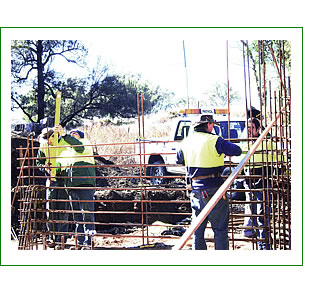In a joint venture between Council, Warialda High School, Warialda TAFE, and Warialda Sports Council, Gwydir Shire is now home to a fully functional fitness centre and training facility for personal development, health and fitness. Like most areas, increasing obesity is an ongoing health issue so Work out Warialda (WOW) was established under the banner of the Gwydir Learning Region. The centre caters for all ages and levels of fitness.
Council is subsidising membership for its staff to encourage their use of the facility. Gwydir’s Human Resources Manager, Leeah Daley, said two teachers from the local high school were approached to present a fitness course.
“Previously, the teachers were able to provide theoretical knowledge to participants, but no facility was available for practical workouts,” she said. “The idea for a gymnasium grew from here.” All stakeholders contributed to the development of WOW with Council paying rent for the building and supporting the centre until it is able to pay its own way.
The two teachers involved are now training community volunteers to provide additional programs.
A number of Year 11 students are undertaking a Certificate II in Fitness at the centre. Participants can then go on to study Certificate III. The students are also involved in the business and customer service side of operations outside of school hours and during holidays.
In the first year of operation, students have assisted with a number of programs, as well as pre-screening and personal training under the supervision of two trained teachers.
Programs to date include:
- cardio resistance
- boxing and flexibility training
- individual exercise programs
- basic rehabilitation programs
- personal training.
Leeah Daley said community interest in WOW has raised the profile of the Gwydir Learning Region Centre.
“The community has embraced it and taken it on,” she said. “We are hoping to set up a similar gym in Bingara in the future.”
Community consultation proves key to infrastructure maintenance task
Covering an area of 9,155 square kilometres, Gwydir Shire has some 2,100 kilometres in sealed and unsealed roads to maintain. This maintenance task is assisted by $811,000 in Roads to Recovery grants each year for the next four years.
Gwydir’s Director of Engineering Services, John Zannes, said that community consultation and feedback is important in determining priorities and assessing works carried out.
“Council holds two regular community meetings per year,” he said. “We hold one in April before the budget is set and another in October to gain feedback on progress to date and to report to the community on current works. We also conduct a two way discussion on the current and future needs of our Shire.”
Following amalgamation, community consultation identified two key priorities:
- the need to improve overall safety of the road network
- recognition that the northern area is of great economic importance to the sustainability of the Shire.
The northern part of the Shire is a major producer of grain and other crops. Due to good water supplies, the region is fortunate to generally have two crops, in both summer and winter each year. While this black soil country is very productive, it is also very expensive in terms of road maintenance. Heavy freight traffic, including b-doubles, using the Shire’s roads cause significant damage to sections that are unsealed.
“Community consultation identified priority areas to be sealed,” John Zannes said. “This resulted in a positive outcome as the community knew what works were taking place and felt ownership of the project due to their input.”
With ample water contributing to the economic sustainability of the Shire, Gwydir is committed to improving water quality and ensuring water will continue to be available as the population increases. While water restrictions are almost unheard of in the region, a new inland railway on the Queensland border, will attract workers and families to the area. Council believes good quality, basic resources will be important in attracting people to Gwydir.
In a first for the area, a new potable water supply has been constructed in North Star using reverse osmosis. Reverse osmosis is the process of pushing a solution through a filter to trap. This allows the pure solvent to be obtained from the other side. The process is best known for its use in desalination – removing salt from sea water to get fresh water.
Council is using a module format at North Star that can be extended as demand increases with population growth.
John Zannes said Council has developed best practice water pricing to work in conjunction with improving water infrastructure and services.
“This establishes Gwydir as one of the most advanced Shires in meeting the best practice guidelines set up by the New South Wales Department of Utilities Energy and Sustainabilities,” he said.

















